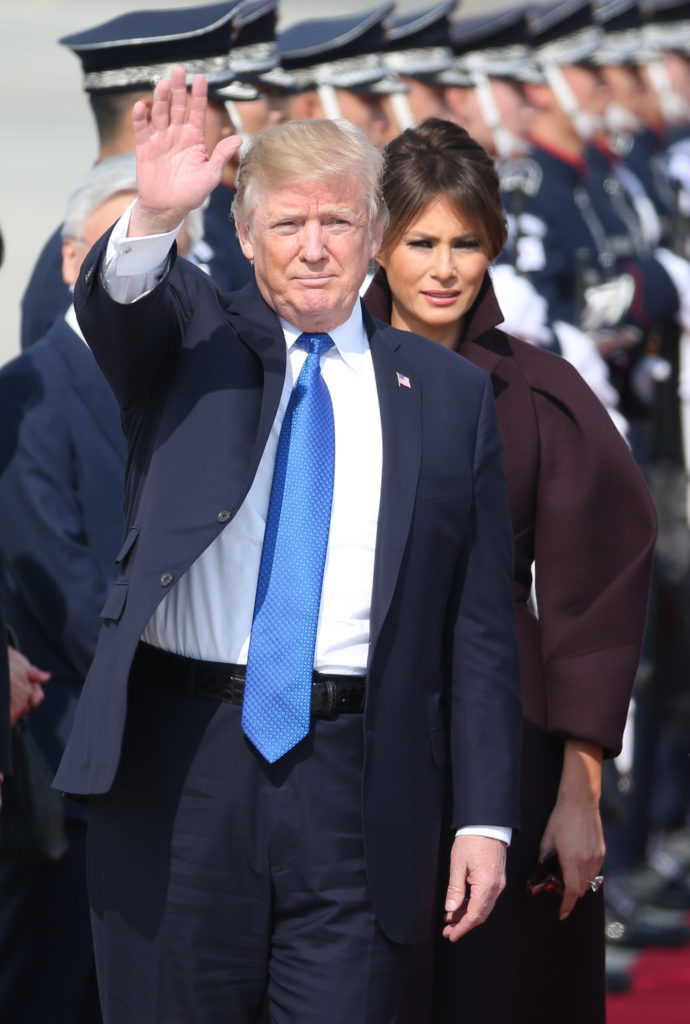On Nov. 4, 2008, I was on a school bus when I heard that Barack Obama had been elected president. I was in sixth grade and I wasn’t exactly emotionally invested. Still, my dad voted for Obama. I didn’t see the big deal. My classmates did not see things the same way.
I heard my friends say they’d seen their parents crying that morning. One neighbor was so outraged, he’d thrown a remote across the room. At the time, I didn’t think too much about the political opinion of my neighbors. I assumed every parent thought the way mine did.
I listened to the other kids talk about the sure future of our country according to their parents: Obama was going to sink us.
On Nov. 8, 2016, I was sitting on my floor watching election results come in. I was sure, like everyone else seemed to be, that I was about to watch history be made. Our first female president was going to grace the White House. The glass ceiling would be shattered.
I was eating popcorn, checking social media occasionally. I wasn’t worried. The polls had promised a victory. The night was going to be smooth sailing.
I can still remember how I felt trying to go to sleep that night. I thought my country, and specifically my state, had been invaded by aliens. The people I knew would never vote for someone like Donald Trump.

I live in a community that is high-majority Christian. We wouldn’t allow Trump to be our children’s elementary school teacher. How could he possibly lead our country?
Then, that day sitting on the school bus entered my mind. This time around, the roles were reversed. My neighbors were calm; some even seemed happy. How could they be happy? I physically couldn’t understand what they were thinking. I had a hard time empathizing.
I felt let down and scrolling through my social media feeds made me feel alone. I decided to cut off Facebook, but the feeling followed me. Half of our country had voted for a man I had absolutely no respect for. I had no idea what to do.
A year has passed since Donald Trump was elected, and in some ways that year has seemed like ten. I remember a family member asking me this question directly following the election: “Why are you so worried? How much do you think he could possibly change?”
Truthfully, I don’t know how much has changed. I attend the same school, have the same job and go to the movies with the same friends.

But beneath the surface, I can find the ways Donald Trump’s presidency has directly affected my life.
My family can no longer discuss politics at family gatherings because we are genuinely not able to have rational conversations about it. My father and I have grown closer, united over a common bond that seems to elude most the people we know.
I feel a strange disconnect from my family and friends, feeling almost like I’m walking among strangers. These people are kind and warm-hearted and open-minded. How could they possibly still support someone who’s been so hateful and disrespectful and borderline racist?
My aunt, an avid Trump supporter, told me once she doesn’t watch the news because it depresses her. I think about that sometimes. Maybe if I could fully disconnect, stop watching the news and late night talk shows and delete Twitter and Reddit, I’d be able to sleep better at night. Maybe I shouldn’t think as much about our government as I do.
Because the truth is, my aunt and I agree on most issues. Once, in the middle of a heated argument, we realized that we agree on far issues more than we disagree about.
We want better health care, we want to pay less taxes and we want American citizens to feel safe and protected. Why are we able to agree on so much and still be unable to have a calm conversation about our president?
Even now, I don’t like to think about Nov. 8. If I do, I get caught up imagining how different things could be if James Comey hadn’t released that letter. I ponder if America could be more united if we had a seasoned politician in office instead of a reality television star. I wonder if my family would be able to discuss gun reform or police brutality if we had a president that took these issues seriously.
Maybe nothing would be noticeably different. Maybe my aunt would feel the same unsettling sadness I do now, the knowledge that people I love have polarizing views to my own. Maybe she’d wonder how her country could have made this decision. I guess we’ll never know, and I have to find a way to live with that.



















